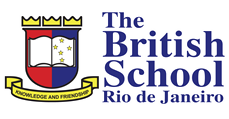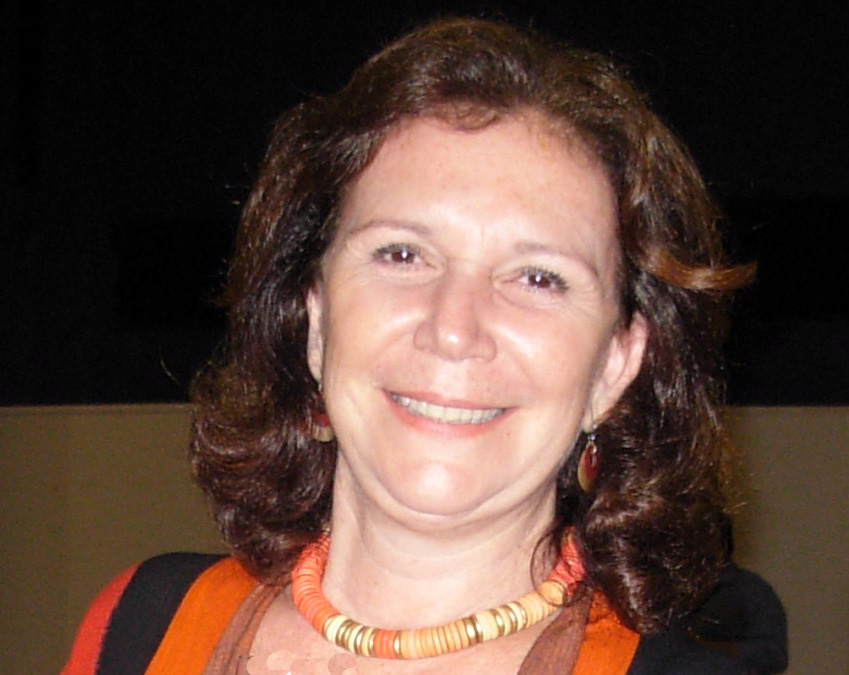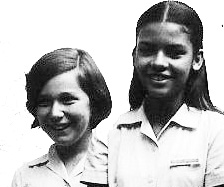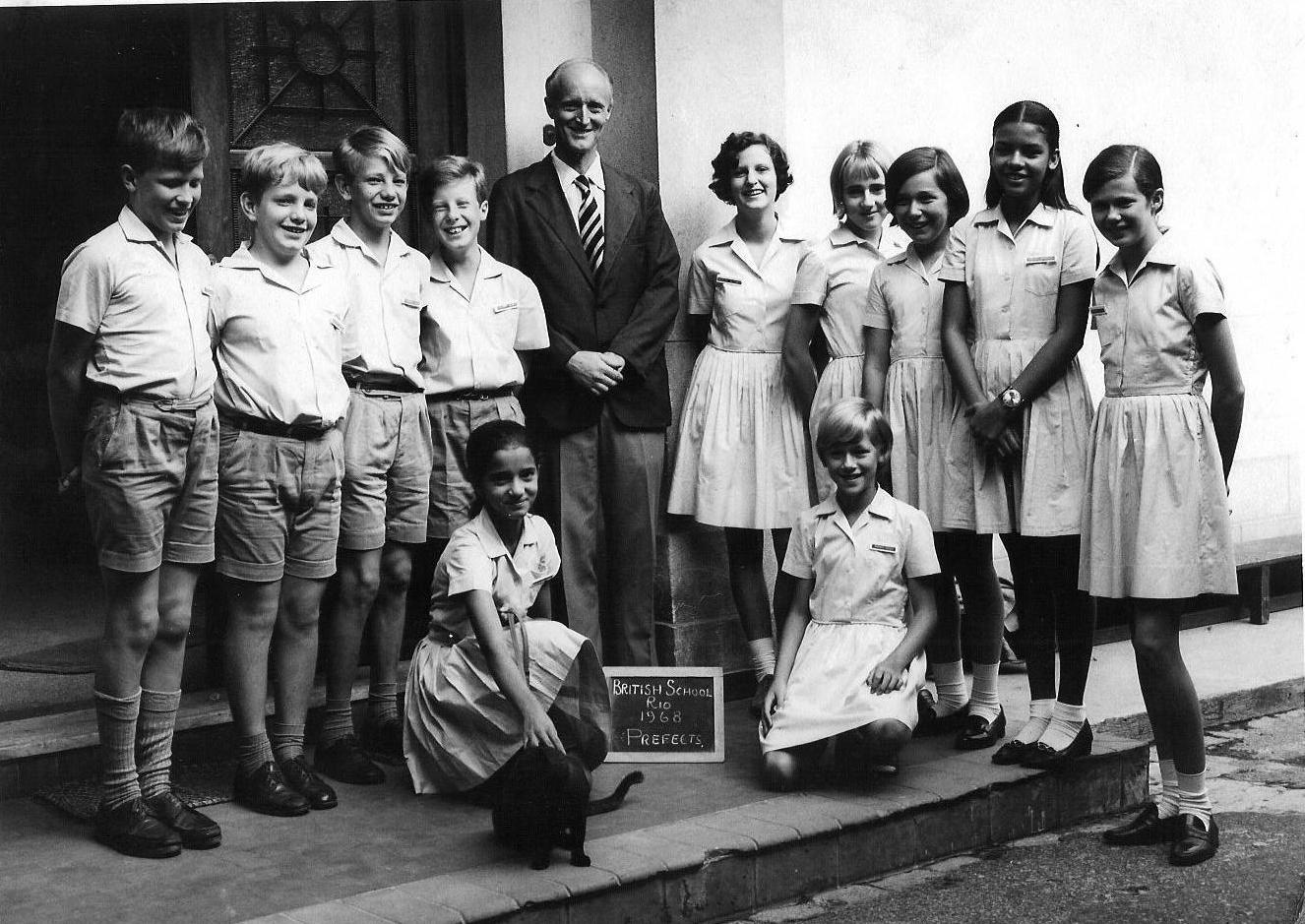SPECIAL INTERVIEW: ALUMNI OF DISTINCTION: Jennifer Byers (nwee: Marvin)
1. You have been featured quite a bit in previous issues of TAABS and other school newsletters for your good works with their Board and events. How long have you been active with TBS, and what is the greatest satisfaction/benefit you derive from your service?
My two sons joined the school in 2000 when we moved back to Rio (in Class 7 Urca and Class 2 Botafogo). My last real contact with the school had been in 1969, when I left, so obviously it had changed and grown hugely since then and I was keen to get to know it better. I joined the PTA initially, and served as the Secretary for a couple of years. It was a good way to get involved and learn more about the school and I was lucky to work with some great people. Subsequently I joined the Board and served on it for a total of four years, with a break in the middle. The two experiences were very different, but both gave me an in-depth understanding of how things work – why things are the way they are, what’s worth fighting to change and what isn’t – and from different viewpoints, i.e. from the parent’s view and the school’s view. I think it’s important for parents to participate and get involved in their children’s school – everybody benefits. If all stakeholders give something, the reward is a stronger feeling of community and better communication – all of which will benefit your child too.
2. We were classmates at TBS in the “good ‘ol days” of the late 60s. What were some of the most memorable times about being a student at TBS during that era?
I joined the school in 1961 – 50 years ago exactly! It was very small – only 250 pupils up to Class 6 or Class 7 – very English, and yet very international. The word “globalization” didn’t exist then, but I remember having friends from Pakistan, Germany, Chile, Denmark, Holland, Canada, Japan, Australia and the USA, apart from England. There were very few Brazilians in the school, and we were NOT allowed to speak Portuguese other than during Gym. It was a serious misdemeanor and if caught, a Prefect would order you to write out ‘lines’… 100 x “I must not speak Portuguese in the playground”. However, we had an awful lot of fun. We had a rather eccentric headmaster, Mr Gordon. One of his great ideas was to tie a rope to one of the top branches of a large tree in the middle of the concrete playground to make a rope swing. No Health & Safety issues in those days! He also built a cage in the yard outside the Ribeiro dos Santos building and kept two lovely jaguatiricas (wild cats), who were fed with live mice. It all seemed perfectly normal! At Sports Day, the two school teams (Oxford and Cambridge) competed, and we were sub-divided into groups according to height: mice, dogs, horses and giraffes. Loads of cups and medals were given out, usually by the wife of the British Ambassador. I clearly remember one of them wearing a hat with flowers – I thought she was the Queen! The annual Nativity play, presented by Class 4, was eagerly anticipated – angels dressed in highly-flammable robes and carrying candles processed around the Hall, led by the angel Gabriel who got to shoot a huge star on sort of giant spring… and all the girls wanted to be Mary! Boys did woodwork (carpentry), with real tools, much to the envy of the girls, who had to do needlework. But the highlight of the year was probably the São João party, attended by all the parents as well, with a huge bonfire in the playground and everyone dressed up. Each class lined up at a long table covered in sand, and got to let off a small selection of fireworks, selected according to the age-group. Unthinkable today! I think the odd accident/burn did occur over the years, but no one sued, and it was just part of learning to be responsible. Despite its apparent lack of resources (we didn’t get a science lab until 1968!), it was a good little school and I know that when I went to school in England I was not behind in any subject at all.
4. How did TBS affect your future academic direction/achievements?
Since I left at age 12 and went to boarding school in England, it’s hard to say that it really affected any academic direction I may have taken. However the fact that we were growing up surrounded by people from so many different countries and backgrounds must have contributed to a generally broad-minded outlook on people and a desire to always get to know people who are different. Looking back I find it strange that the school was such a microcosm of international life, which almost did not acknowledge the fact that we were in Brazil. Of course we had Portuguese as a subject, but to this day my knowledge of the grammar is scant and it remains a second language, even though I was born here. In terms of achievements, I would say that probably like most schools back then, the rules were strict and the guidelines clear: success was desirable, failure – a word still in use then – was not. We respected our teachers, even if we didn’t like them, we abided by the rules, we accepted that some things just weren’t fair ( I didn’t get to be Mary!), and we celebrated the achievements of others. It wasn’t cool to be bad, it was much cooler to be good! Old fashioned values perhaps, but still worth something.
5. You currently have a translation services business, VerbaVox. Do you specialize in any specific industry, subject? How is it having your own business in Brazil today?
I have a very varied list of clients and work in a number of different fields. Obviously the oil & gas industry here is generating a large amount of work, as is construction and engineering. Much of my training and work has been in the hospitality and tourism sectors and I would like to focus more in that area. No doubt with the forthcoming World Cup and Olympics the opportunities will expand, and I’d like to focus in that direction. In the meantime, anyone got a cookbook they’d like translated??
6. What specific recommendation(s) would you give to a young person graduating from TBS today?
Many graduates have no idea what they want to do, and feel pressured to declare themselves and make decisions which they are not ready to make. I don’t think anyone has ever said it better than Steve Jobs did, in his commencement speech at Stanford. “You’ve got to find what you love (…) Your work is going to fill a large part of your life, and the only way to be truly satisfied is to do what you believe is great work; and the only way to do great work, is to love what you do. If you haven’t found it yet, keep looking, and don’t settle. ”
You have been enormously lucky to have had the benefit of the education that the School offers. Everything you have done up till now, all the education and learning experience to which you have been exposed by the School, will have prepared you, whether you recognize it now or not, to be a world citizen and one who is equipped with the fundamental skills to succeed and be happy in whatever you choose to do. Don’t settle for other people’s expectations of you – they may be higher or lower than your own potential. Listen your heart, and don’t settle until you’ve done what it tells you to do.






